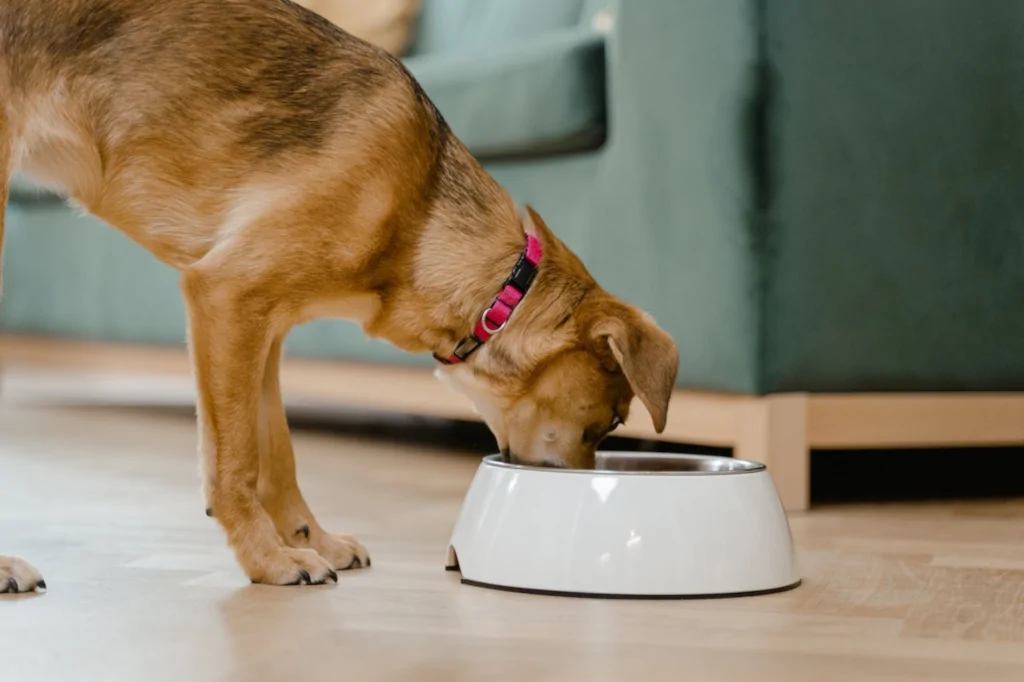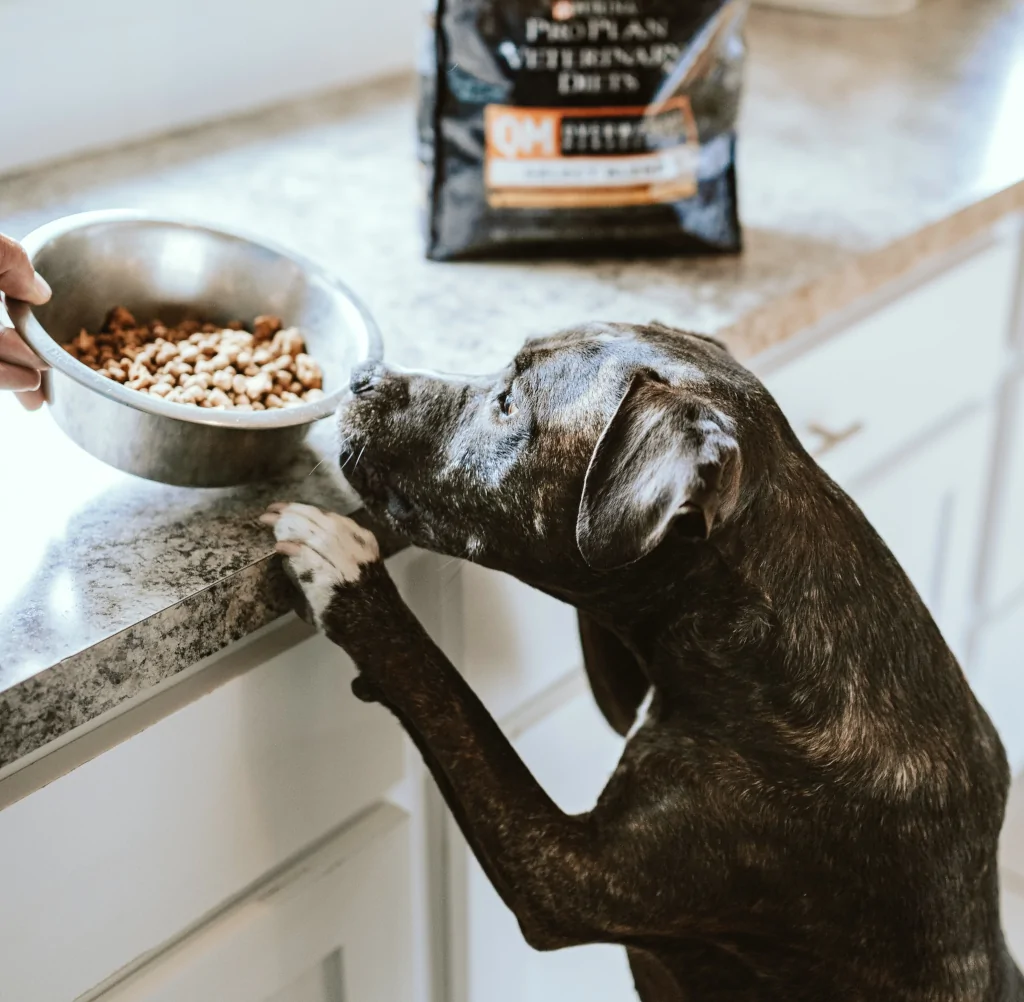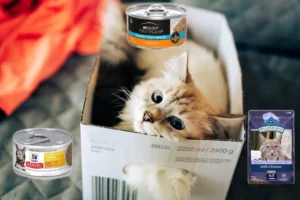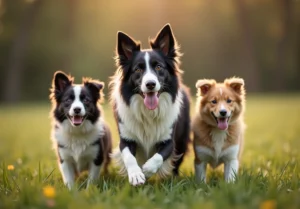Disclosure: We may earn a commission from helpful, relevant links in our content. No cost to you. See our privacy policy.
Life can be hectic, and sometimes even the most attentive pet parents can slip up and forget to feed their beloved canine companion.
It’s only natural to worry about how this oversight might impact your canine pal. But fret not! In this blog post, we’ll explore the consequences of missing a meal, discuss how long dogs can go without food, and offer tips to prevent future mealtime mishaps.
So, take a deep breath and let’s dive into the world of doggy dining habits together!

Is It Okay if I Forgot to Feed My Dog Once?
It’s not ideal, but forgetting to feed your dog once is usually not a cause for alarm. Most dogs can handle a missed meal without significant harm.
Just make sure to get back on track with their regular feeding schedule as soon as possible to ensure they receive the proper nutrition they need, whether you’re feeding them one pet food for dogs and cats or a specialized diet.
What Happens if a Dog Misses a Meal?
When a dog misses a meal, they may feel hungry and might become a bit more energetic in search of food.
However, a single missed meal is unlikely to cause serious health issues for a healthy dog.
Be aware that your pup may be more eager than usual for their next meal, so keep an eye on their behavior and be prepared for some enthusiastic chowing down.
How Long Can a Dog Go Without Food?
While it’s never ideal to have your dog go without food, a healthy adult dog can generally withstand a day or two without significant issues, thanks to their natural ability to regulate energy usage.
However, it’s crucial to remember that puppies, senior dogs, or those with specific health conditions may be more vulnerable to the effects of a disrupted feeding schedule.
Make sure to always consult your vet if you have concerns about your dog’s nutrition or feeding habits.
Can Dogs Eat Once a Day or Should They Eat More Often?
Feeding frequency for dogs can vary depending on factors like age, breed, and activity level.
While some dogs might do well with a single meal per day, others may benefit from smaller, more frequent meals. Puppies, for example, need multiple meals a day to support their rapid growth, while adult dogs may thrive on one or two meals per day.
Ryan Llera and Robin Downing (DVM) at VCA hospitals recommend at least two feedings per day for an average dog.
An occasional healthy treat is also fine, such as a milk bone, as most dogs seem to love them. To determine the best feeding schedule for your dog, consult your veterinarian, who can take into account your pet’s unique needs and lifestyle.

How to Ensure You Never Forget to Feed Your Dog Again
To make sure you never forget a mealtime for your furry friend, consider implementing some helpful strategies that cater to your lifestyle and preferences. Here are a few ideas to keep you on track:
- Set alarms. Use your phone or a traditional alarm clock to set daily reminders for your dog’s feeding times. This will help you develop a consistent routine and prevent missed meals.
- Visual cues. Place a whiteboard or a sticky note near your dog’s feeding area. Write down the feeding schedule and check it off each time you feed your dog. This visual reminder can help reinforce the routine.
- Meal prep. Preparing your dog’s meals in advance can save time and ensure you don’t forget a feeding. Use containers or baggies to portion out individual meals, so all you have to do is grab and serve.
- Enlist help. If you’re worried about forgetting to feed your dog due to a busy schedule, consider asking a family member, friend, or neighbor to assist in keeping an eye on your dog’s feeding routine.
- Use technology. Automatic pet feeders are a great option for those who need a little extra help with consistency. These devices can be programmed to release food at specific times, ensuring your dog never misses a meal.
By incorporating some of these strategies, you can create a reliable feeding routine that keeps your dog happy and healthy while reducing the stress of missed meals.
FAQS
What should I do if my dog is hungry after missing a meal?
If your dog seems hungry after missing a meal, feed them their normal portion during the next scheduled feeding time to avoid overfeeding and digestive issues.
Can I make up for a missed meal by feeding my dog extra food?
Feeding your dog extra food to make up for a missed meal is not recommended, as it can lead to overeating and potential digestive problems. Stick to their regular portion sizes and feeding schedule.
Are automatic feeders a good solution for forgetful pet owners?
Automatic feeders can be an effective solution for forgetful pet owners, as they dispense pre-set portions of food at scheduled times, ensuring your dog receives consistent meals. Take a look at some of the highest-rated ones from Amazon.
Should I change my dog’s feeding schedule if I forget a meal?
If you forget a meal, it’s best to resume your dog’s regular feeding schedule as soon as possible. Avoid making significant changes to the schedule, as consistency is key for your dog’s health and well-being.
Alex, a passionate animal lover, has experience in training and understanding animal behavior. As a proud pet parent to two dogs and three cats, he founded AnimalReport.net to share insights from animal experts and expand his knowledge of the animal kingdom.




